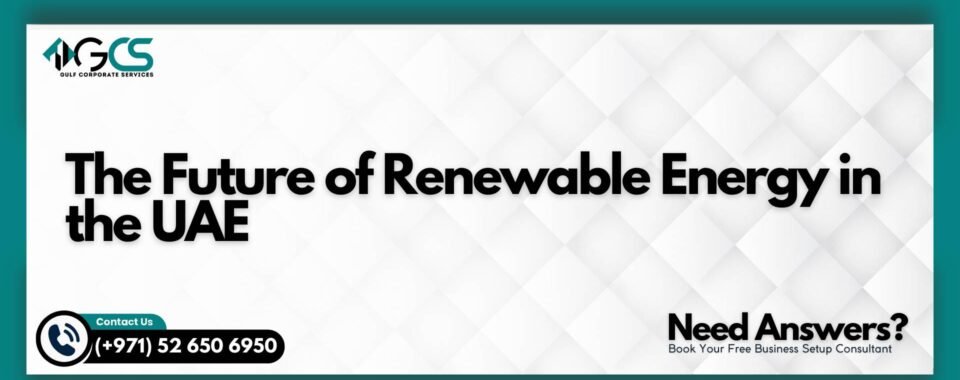
The UAE is rapidly pivoting from its dependence on oil toward a future driven by renewable energy. This shift is fueled by a vision for energy sustainability, reducing carbon footprints, and championing green growth. With ambitious targets and innovative projects, the future of renewable energy in the UAE looks bright — and this transformation impacts everything from industry and investment to education and quality of life.
Understanding Renewable Energy
Renewable energy is more than a buzzword—it’s the reliable, clean power that will define our sustainable future.
What is Renewable Energy?
Renewable energy means power generated from sources that naturally replenish—such as solar, wind, hydro, and biomass. These sources produce minimal greenhouse gases compared to fossil fuels and help mitigate climate change.
Types of Renewable Energy Sources
The UAE is particularly focused on:
- Solar energy (photovoltaic & concentrated solar power)
- Wind power, especially offshore turbines
- Waste-to-energy plants that convert garbage into electricity
These technologies reduce dependency on non-renewable resources and support environmental goals.
UAE’s Vision for Renewable Energy
The UAE has laid out a bold strategy for energy transformation, with clear roadmaps and public-private partnerships.
UAE Energy Strategy 2050
The UAE Energy Strategy 2050 targets 50% clean energy generation by 2050. It plans to cut the carbon footprint by 70% while also saving AED 700 billion by 2050. This ensures a balanced mix of renewables, gas, and reliable grid infrastructure.
Government Initiatives and Policies
Key policies include:
- Subsidies and tariffs supporting solar farm investments
- Incentives for carbon capture and green hydrogen
- Mandates for energy efficiency in construction
- Digital transformation via smart grids and IoT monitoring
These policies support both large projects and small-scale green startups.
Current Renewable Energy Projects in the UAE
The UAE is already home to world-class renewable energy projects.
Solar Energy Projects
- Mohammed bin Rashid Al Maktoum Solar Park: One of the world’s biggest solar farms, targeting 5,000 MW by 2030.
- Noor Abu Dhabi: A 1,177 MW solar plant that provides power to 90,000 homes.
These projects harness solar PV technology, helping drive down the price of solar-generated electricity.
Wind and Waste-to-Energy Initiatives
- Pilot offshore wind farms along the Gulf coast
- Waste-to-energy plants in Sharjah and Abu Dhabi convert municipal waste into power, reducing landfill use
- Biogas facilities recycle organic waste for clean electricity
These efforts diversify the UAE’s energy mix and boost circular economy goals.
Challenges in Implementing Renewable Energy
Scaling up renewables comes with its own set of hurdles.
Infrastructure and Technological Barriers
- Need for power grid upgrades to handle intermittent sources
- Investment in energy storage like batteries or pumped hydro
- Training engineers and technicians to manage new infrastructure
Strategic investments in smart infrastructure are essential.
Economic and Policy Considerations
- High upfront capital for large-scale projects
- Creating consistent, clear regulations to attract global investors
- Ensuring affordable clean energy pricing for both industry and households
Overcoming these will unlock sustainable growth and competitive advantages.
Opportunities and Growth Potential
Renewable energy presents massive economic and social upside for the UAE.
Investment and Innovation
- Expected global cleantech investment in the trillions over the next decade
- Partnerships with universities and venture capital funding for green startups
- Growth in green hydrogen, solar desalination, and low-carbon materials
This positions the UAE as a leader in energy technology and innovation.
Job Creation and Sustainable Development
The shift to renewables can create hundreds of thousands of jobs in:
- Engineering and grid management
- Project planning and environmental impact
- Manufacturing and R&D for energy systems
This boosts local employment and supports sustainable cities.
Future Outlook of Renewable Energy in UAE
The next decade will define the UAE’s leadership in global energy transition.
Role of Artificial Intelligence and Smart Grids
AI and machine learning optimize solar and wind deployments. Smart grids enable real-time management, predictive maintenance, and energy trading platforms to balance demand and supply efficiently.
Global Leadership and Export Opportunities
With clean energy expertise, the UAE can export sustainable solutions:
- Provide solar tech and consultancy services to emerging markets
- Export green hydrogen and low-carbon products
- Host international sustainability conferences
This strengthens the UAE’s role as a global energy innovator.
Also Read: Business Setup in Dubai, UAE
Conclusion
The future of renewable energy in the UAE is on track to redefine regional and global energy landscapes. With bold vision, smart policy, and increased investment, the UAE is poised to transition into a center of clean energy excellence, innovation, and export-driven growth. As the world moves toward net-zero targets, the UAE’s leadership in solar, wind, waste-to-energy, and digital energy systems positions it for long-term success.
FAQs
What is the UAE’s renewable energy target by 2050?
The UAE aims to source 50% of its energy from clean sources by 2050, reducing carbon emissions and saving AED 700 billion.
What are the major renewable energy projects?
Key projects include the Mohammed bin Rashid Al Maktoum Solar Park, Noor Abu Dhabi, and pilot offshore wind and waste-to-energy plants.
How does a smart grid support clean energy?
Smart grids use data, analytics, and AI to manage energy supply and demand, integrate storage, and maintain grid stability efficiently.
What role does green hydrogen play?
Green hydrogen—made using renewable energy—offers a zero-carbon fuel for industries and can boost the UAE’s export of clean energy solutions.
How is the UAE addressing renewable energy challenges?
By investing in grid upgrades, energy storage, regulatory clarity, and public-private partnerships, the UAE works to overcome infrastructure and policy barriers.








